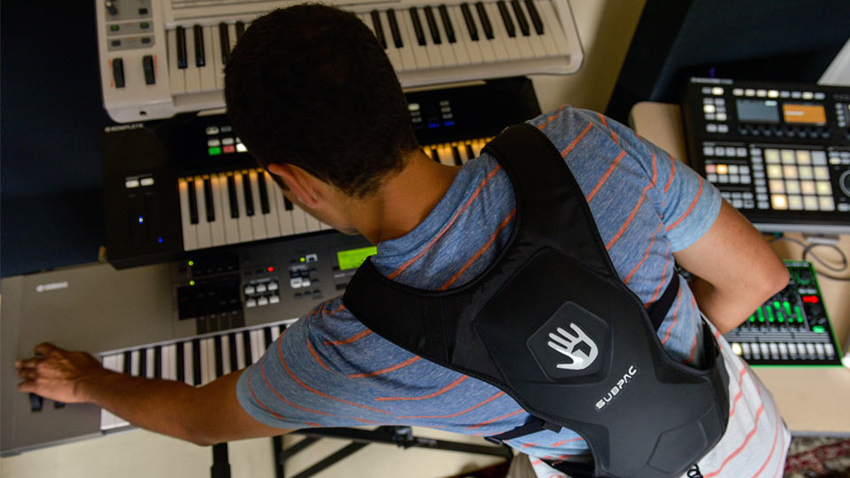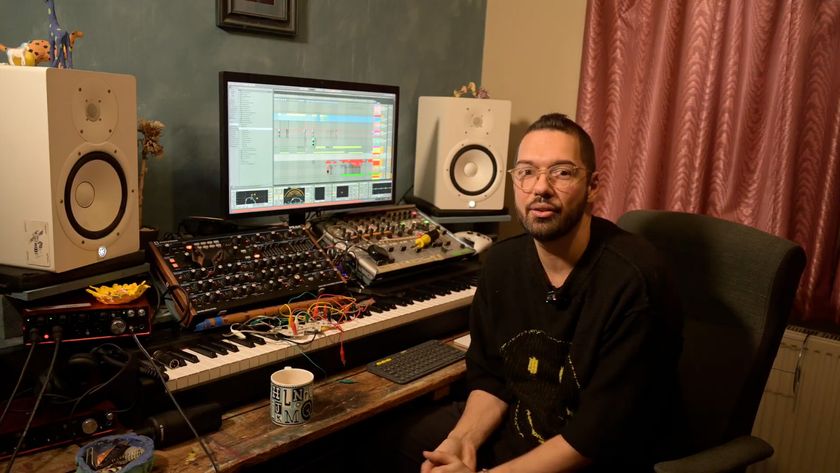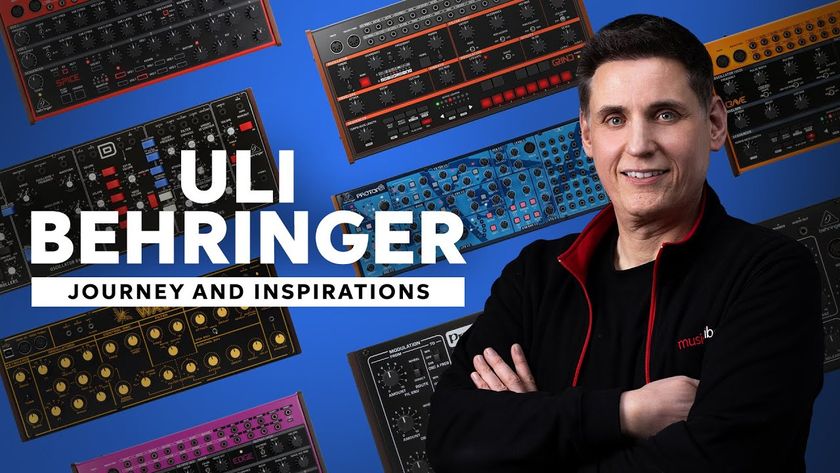How effective are 'wearable' monitoring aides for producers?
If you can't trust your ears, maybe it's time to use some other part of your body

We're seeing a new generation of products that enable you not to hear sound, but to feel it - particularly at the low end of the frequency spectrum.
Can these pieces of wearable tech actually help you to create better mixes, though? We asked four industry types for their thoughts.
SubPac
"In a room, it's the bass that's hardest to control, being the part of the sound spectrum that travels furthest. SubPac allows you to feel music and sound independently of the room. The signal is not affected by room modes and standing waves. It's also more or less silent, meaning you can work
'til 4am any time you want, because you can accurately monitor the subs down to 5Hz whilst using headphones for the mids and highs.
"Wearable Tactile Audio is just better - more accurate, higher fidelity, less intrusive for others, better for your hearing, better quality, and more portable than traditional studio speakers."
Darin McFadyen
Guitammer
"ButtKicker products were invented by a former studio engineer and a bass player to allow for clear, clean, accurate bass monitoring. We believe that tactile audio reinforcement is a crucial element of an effective audio production environment. By allowing producers and engineers to feel low end (300Hz and below), precise and musical bass can be incorporated and monitored without the need for overpowering subwoofer sound pressure levels. And, when headphones are used, this allows for a better understanding of the bass in the mix, regardless of the low end capabilities of the headphones being used."
Andrew Luden
Get the MusicRadar Newsletter
Want all the hottest music and gear news, reviews, deals, features and more, direct to your inbox? Sign up here.
Lofelt
"Wearable tactile audio devices recreate the energy of the bass in your track with high precision and put it directly into your body. When using tactile music devices like the Basslet for mixing, the expectation should not be a nearfield monitor experience. It's more about the energy and punch in the music and how that energy translates into your body; eg, when listening to music on a large sound system. Issues like 'wolf tones' or smeared transients in the bass register are more noticeable through these tactile audio devices."
Daniel Buettner
Alex Blanco (producer)
"Technically, I'd say that they have absolutely no value whatsoever! I've tried SubPac, for example, and it's an awesome feeling - and I want one - but it will not help your mixes in the slightest. It can't tell you if your kick is interfering with your bass, or whether or not your subs are overloading your limiter, or if the low-cut on your kick drum will sound better in a club at 40Hz or 49Hz...
"That said, from a vibe point of view, if you don't have the luxury of high volume in your home setup, then monitoring aides can be a great way to really get into a session - especially when practising for a live performance. Just don't expect them to enhance your sound! For that, invest in upgraded monitors or a mix engineer!"


Computer Music magazine is the world’s best selling publication dedicated solely to making great music with your Mac or PC computer. Each issue it brings its lucky readers the best in cutting-edge tutorials, need-to-know, expert software reviews and even all the tools you actually need to make great music today, courtesy of our legendary CM Plugin Suite.

“My love letter to a vanished era that shaped not just my career but my identity”: Mark Ronson’s new memoir lifts the lid on his DJing career in '90s New York

“I'm always starting up sessions and not finishing them, but I don't see that as unproductive”: Virtuosic UK producer Djrum talks creativity and making Frekm Pt.2



![Chris Hayes [left] wears a purple checked shirt and plays his 1957 Stratocaster in the studio; Michael J. Fox tears it up onstage as Marty McFly in the 1985 blockbuster Back To The Future.](https://cdn.mos.cms.futurecdn.net/nWZUSbFAwA6EqQdruLmXXh-840-80.jpg)






